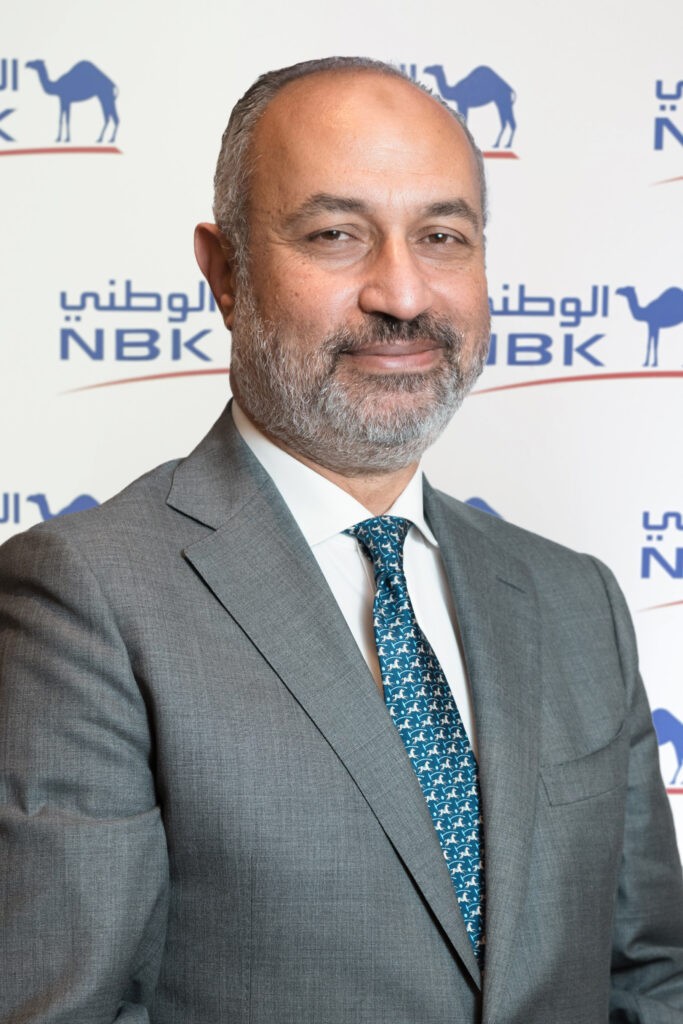25/05/2024
25/05/2024

Kuwait / Egypt, May 25: National Bank of Kuwait - Egypt (NBK-Egypt) has announced net profits of EGP 1.28 billion (KD 11.71 million) for the first quarter of 2024, a significant increase from the EGP 652 million (KD 6.88 million) reported in the first quarter of 2023, showcasing an impressive growth rate of 96.32%.
Net Operating Income stood at EGP 2.75 billion, recording a substantial increase of 48.6% from EGP 1.85 billion recorded in the corresponding period of 2023. In the meantime, Net Interest Income grew by 53.9%, reaching EGP 2.37 billion compared to EGP 1.54 billion in 1Q2023.
On the other hand, Net Operating Income (excluding interests) increased to EGP 382.67 million in 1Q2024, compared to EGP 321.64 million in 1Q2023, up by 18.97%, while Cost to Net Operating Income dropped from 37.51% in 1Q2023 to 26.15% in 1Q2024.
Total assets reached EGP 155.56 billion in 1Q2024, up by 19.10% compared to the year-end balance of EGP 130.61 billion in 2023. Furthermore, the net balance of loans and credit facilities expanded to EGP 86.14 billion in 1Q2024, reflecting a growth rate of 13.25% compared to EGP 70.06 billion recorded at the end of 2023, including a 45.5% increase recorded by the loans and credit facilities in foreign currencies on the back of the appreciation of foreign currencies against the Egyptian pound.
Meanwhile, customer deposits grew by 19.64% to reach EGP 126.73 billion in 1Q2024, compared to EGP 105.93 billion by the end of 2023. This includes a 52.1% rise in the balance of customer deposits in foreign currencies, influenced by the appreciation of the exchange rate and higher return rates on deposits. The Return on Average Assets (ROAA) rose from 2.5% in 1Q2023 to 3.6% in 1Q2024, while the Return on Average Equity (ROAE) increased from 23.7% in 1Q2023 to 33.6% in 1Q2024.
Commenting on the financial results announced by NBK-Egypt, Ms. Shaikha Al-Bahar, Deputy Group Chief Executive Officer, National Bank of Kuwait, and Chairman of NBK-Egypt, said: “In the first quarter of 2024, National Bank of Kuwait - Egypt continued to achieve strong operating performance across its main business sectors, despite the challenging macroeconomic landscape.”
Al-Bahar stated that Egypt remains one of the most prominent strategic markets for the growth of the Group's business, consistently regarded as its second local market. The bank, as the largest Kuwaiti investment on Egyptian soil, has established a significant presence as one of the fastest-growing banks within the Egyptian banking sector. This growth is reflected in the financial indicators and record business results achieved by NBK-Egypt, particularly in recent years.
Al-Bahar emphasized that the continued expansion of the balance sheet and the growth of all financial indicators affirm the success of the bank's business diversification strategy and its accelerated digital transformation efforts. This strategy aims to increase the bank's market share, particularly in retail banking services, in the region's largest market by population.
"We are committed to enhancing the quality of our services, expanding our geographical footprint, and reaching a more diverse customer base. This is made possible by the significant advancements in our digital infrastructure, information technology, and electronic channels. These developments have positioned NBK-Egypt as a strong competitor in the Egyptian banking market, especially amidst the rising demand for banking services and the growing rates of financial inclusion," Al-Bahar added.
Meanwhile, Vice Chairman, CEO, and Managing Director of National Bank of Kuwait-Egypt, Mr. Yasser El-Tayeb, said: “The strength of the bank's business results, which have exceeded all expectations and targets for this period of the year, reflects the resilience and adaptability of our business model. This growth continues despite the exceptional market challenges we face locally, regionally, and globally.”
El-Tayeb emphasized that NBK-Egypt is experiencing balanced growth across all activities and business sectors while maintaining efficiency rates and risk ratios that align with this expansion. This approach ensures business sustainability and customer satisfaction alike, thanks to the bank's prudent policies and its robust business model capable of meeting customer needs and diversifying income sources. This balanced growth is evident in the bank’s diverse credit operations within the corporate sector, which includes large, medium, and small enterprises. Additionally, the retail banking sector has seen significant growth, with NBK-Egypt continually strengthening its position through advanced services and products tailored to various customer segments and lifestyles. This comprehensive approach establishes NBK-Egypt as a “one-stop-shop” that meets all financial needs. Furthermore, the bank is committed to its horizontal expansion plan, opening new branches to cover key cities and governorates across Egypt.
"We strive to support the global trend towards sustainable finance and the transition to a green economy," he added. "Our focus is on backing environmentally friendly projects that achieve sustainability and increasingly rely on renewable energy. We are also committed to exploring available solutions to mitigate the negative effects of climate change and reduce carbon emissions. Sustainable finance has become one of the most crucial tools for supporting and maintaining long-term financial stability,” Al-Tayeb added.
“Recognizing the significance of technology and electronic channels in the banking sector and their substantial role in bolstering competitive advantage among banks, we have consistently reinforced our electronic services," El-Tayeb emphasized. "We actively encourage customers to broaden their usage of these services for payments, aligning with the overarching policy of the state and the Central Bank of Egypt. This initiative aims to foster financial inclusion and integrate new customer segments into the official banking system, contributing to the shift towards a less cash-dependent society.”


